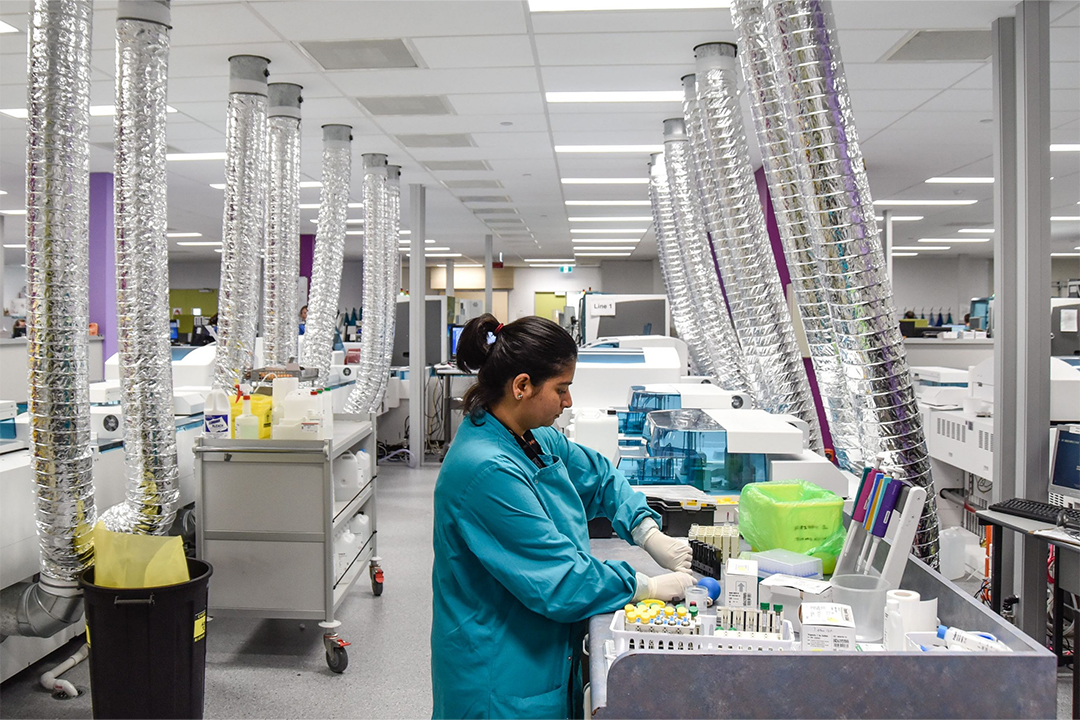Clinical trials and research studies support innovative and transformative research and are critical pathways for testing the safety and effectiveness of new drugs, medical devices, and techniques for early detection of disease. They provide New Zealanders the chance to access different treatments or implement lifestyle changes to prevent illness and manage health challenges. They can also be used to inform Government policy.
The Awanui network’s laboratories and collection services play a key role in the success of clinical trials and research studies. Our core role is the collection and testing of the trial participant’s samples and may also involve the set up and validation of a new assay.
Clinical trial processes and procedures sit outside the laboratories diagnostic work. However, the opportunity to do things differently, and work with different agencies and people allows us to evolve and to be part of this exciting work which could change lives. Awanui are proud of the role we play in the clinical trials which impact or inform us on the health of New Zealanders. The following are a few examples of New Zealand based studies the Awanui network has been involved in:
The Dunedin Multidisciplinary Health and Development Study (The Dunedin Study) began in the late 1960s to assess health problems in three-year-olds and investigate questions of child development. The role of our laboratories was to manage blood collection and testing at each phase of the trial, as well as set up and validate new assays (a lab test to find and measure the amount of a specific substance) specifically for the study.
The participants are now over 45 years old, and the many phases have contributed to countless publications on health and development.
Whole Grains for Health is a study led by the University of Otago, who are investigating the impact whole grain foods can have on blood glucose control for Type 2 diabetics.
We collected, analysed, and reported the blood results for participants across Otago, Southland, and Canterbury. This study will help inform the University’s research into whether providing healthy groceries to patients recovering from heart attacks is less expensive for the health system than the cost of providing future medical care.
The First Foods New Zealand study examines changes in infant feeding, such as the use of baby food pouches and baby-led weaning and the effects on infant health. Our teams collected and analysed over 378 samples across Dunedin and Auckland which will enable both the Ministry of Health and Plunket to provide the most up to date advice to parents on how to feed their babies safely.
To deliver these services and work in partnership with researchers, Awanui have established the Clinical Trials Network – a multi-disciplinary team of clinicians, laboratory leads, quality and safety leads, and business managers across our national network. The Network is responsible for co-ordinating and standardising processes in support of clinical trials across all our services.
An acknowledgment goes to all the Awanui staff involved in supporting clinical trials, which supports research to potentially change lives for New Zealanders and others around the world.
If you have any questions, or want to find out more about the Awanui network’s work with clinical trials, please get in touch with John Osborne, Commercial Manager, at john.osborne@awanuigroup.co.nz.
